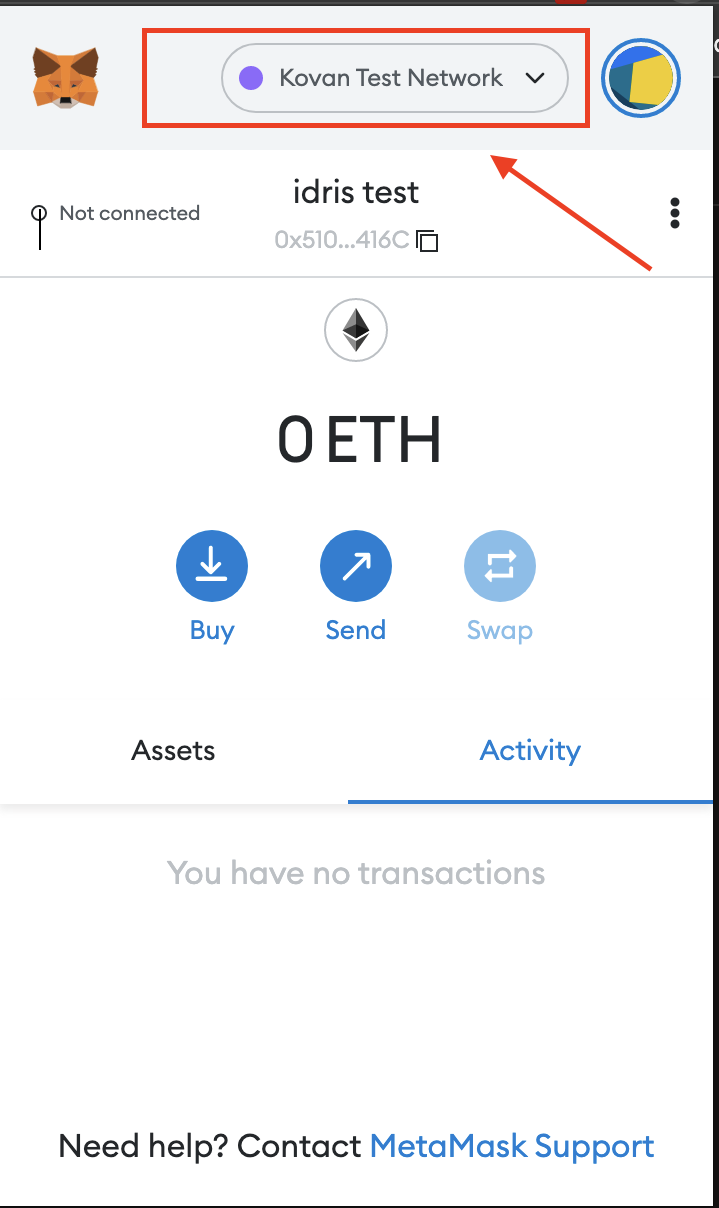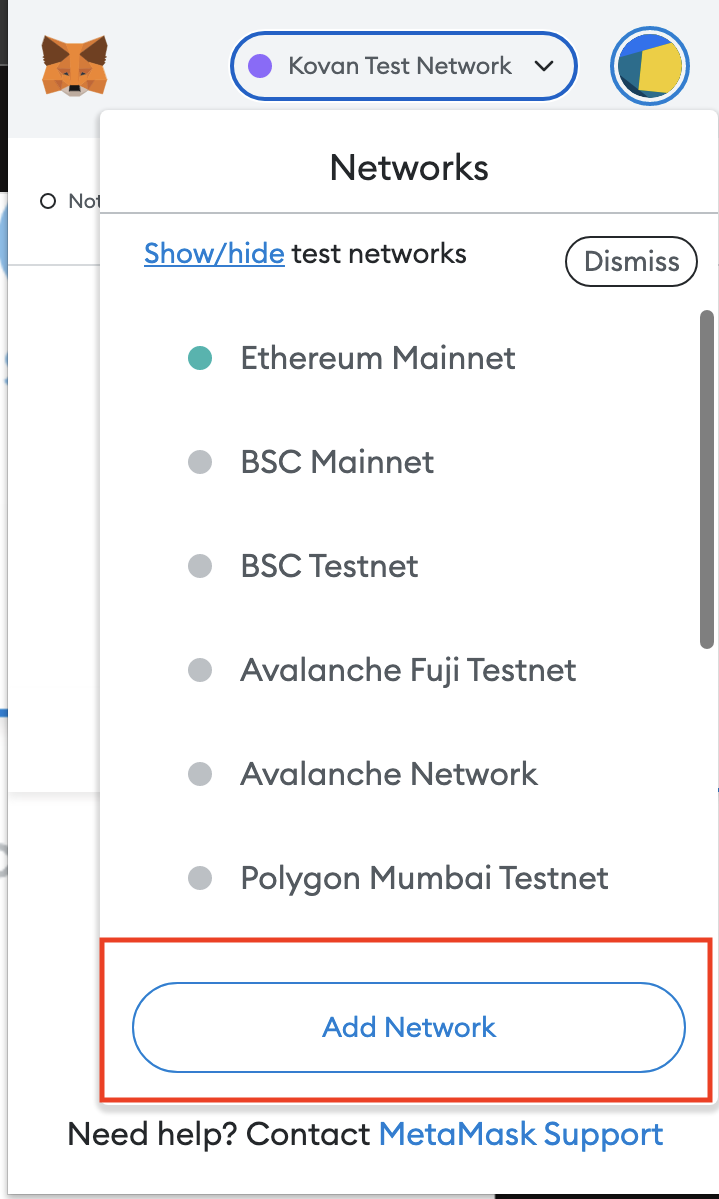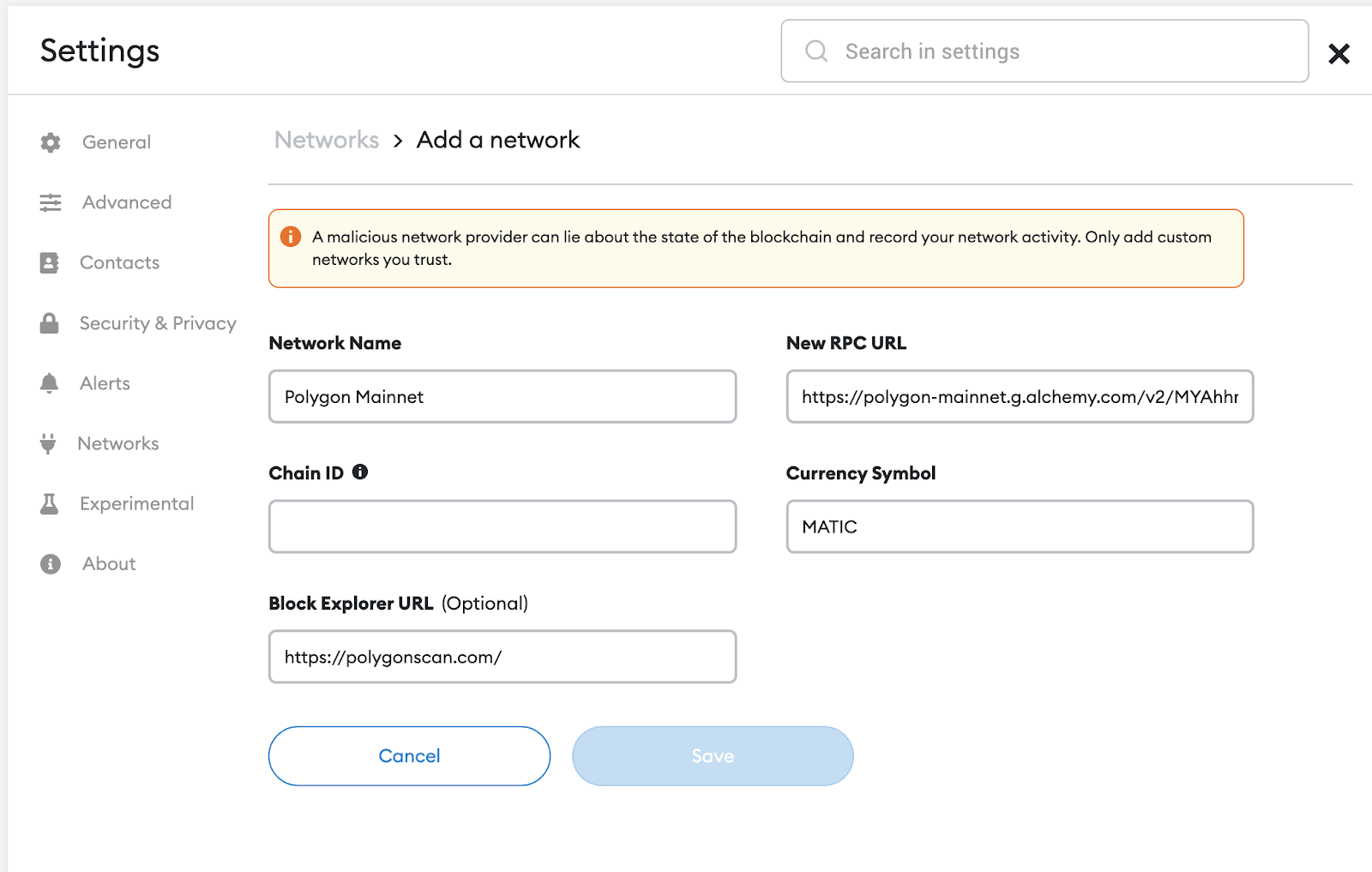
How to Create a Private RPC Endpoint in 2025
Written by Alchemy
RPC nodes provide a link between blockchains and the decentralized applications (apps) that run on top of them. Web3 wallets have default RPC node providers so users can easily start interacting with onchain apps, however, sometimes these default, public RPC nodes cause problems for everyday users and developers due to slow network speeds, incorrect blockchain data, and unreliable service (uptime).
In this article we’re going to explain why it is a good idea to create a private RPC endpoint (instead of using public RPC endpoints,) and how to add one to your MetaMask wallet so you can get faster speeds, accurate data, and more reliable service.
In the context of this article, the term “private RPC endpoint” means a personal RPC endpoint that is not publicly available for everyone else to use. We do not mean that the transactions sent through your personal RPC endpoint are private transactions, that they will settle privately, or that they will not appear in the public mempool.
What is a private RPC endpoint?
A private RPC endpoint is an RPC endpoint with a unique URL that only the owner can use to send transactions to the public mempool, providing individuals with a direct connection to a node provider.
Private RPC endpoints enable users to publish transactions through a dedicated endpoint instead of using their wallet’s default, public endpoint which is being used simultaneously by the wallet’s other users.
What are the benefits of using a private RPC endpoint?
Using a private RPC endpoint has many benefits including speed, accurate data, more reliable service, and less competition when submitting transactions during periods of high transaction volumes like an exclusive NFT drop.
Here are some of the use cases where traders, developers, and everyday users could benefit from updating their MetaMask wallet from the default RPC endpoint to a private RPC endpoint:
Sending transactions during an exclusive, first-come-first-serve NFT mint
Sending transactions to capitalize on time-sensitive arbitrage opportunities
Getting reliable service when other node providers experience degraded service during airdrops
There are multiple reasons why web3 users stand to benefit from creating a private RPC endpoint and updating their default web3 wallet settings to send transactions through a personal RPC endpoint.
What are the benefits of using Alchemy for a private RPC endpoint?
Alchemy is the leading web3 node infrastructure provider for Ethereum, Polygon, Arbitrum, Optimism, and many more layer 1 and layer 2 blockchains because of their speed (i.e. low latency), data correctness, and reliability (99.99% uptime), compared to other providers like Infura (MetaMask’s default RPC endpoint provider), and Quicknode.
For everyday users it means Alchemy is faster, more accurate, and dependable than alternative providers.
For developers and traders, using Alchemy has many other benefits from their free account including:
Webhooks for Ethereum, Polygon, Arbitrum, and Optimism
Free archive data
Enhanced APIs
User-friendly debugging and application monitoring tools
A simple-to-use developer dashboard
New accounts can be created in a couple minutes
In addition to these benefits, creating a personal RPC endpoint takes just a couple minutes.
How to Create a Private RPC Endpoint
We'll use Alchemy to create a personal RPC endpoint. You can create an account for free.
Step 1 - Create an Alchemy Account
Enter your name, email address, and a password to sign up, or log into your existing account.
Step 2 - Create a New App
After creating a new account, you will be redirected to our dashboard, where we can create a new app by clicking on the Create App button as shown below.

Next, input the following app information based on the network for which you want to create a private RPC endpoint.
For the description, you can write anything you want or leave it blank.
Alchemy App Details for a Personal Ethereum RPC Endpoint
Name: Private RPC Endpoint - Ethereum (Mainnet)
Chain: Ethereum
Network: Mainnet
Alchemy App Details for a Personal Polygon RPC Endpoint
Name: Private RPC Endpoint - Polygon (Mainnet)
Chain: Polygon
Network: Mainnet
Alchemy App Details for a Personal Arbitrum RPC Endpoint
Name: Private RPC Endpoint - Arbitrum (Mainnet)
Chain: Arbitrum
Network: Mainnet
Alchemy App Details for a Personal Optimism RPC Endpoint
Name: Private RPC Endpoint - Optimism (Mainnet)
Chain: Optimism
Network: Mainnet

Next, copy the RPC URL provided by Alchemy in the app details as shown below.

Step 3 - Connect to a New Network in MetaMask
Next, open your MetaMask wallet and connect to a new network using the RPC URL from the previous step.
Open Metamask
Click the network name in the window's upper-right corner, as shown below

3. At the bottom of the pop-up window, click the Add Network button.

4. Enter the following network details based on the blockchain for which you created your private RPC endpoint
5. Then click Save
Network Details for Creating a Private Ethereum RPC Endpoint
Network Name: Ethereum Mainnet
New RPC URL: 1 https://eth-mainnet.alchemyapi.io/v2/your-api-key
Chain ID: 1
Currency Symbol: ETH
Network Details for Creating a Private Polygon RPC Endpoint
Network Name: Polygon Mainnet
New RPC URL: https://polygon-mainnet.g.alchemy.com/v2/your-api-key
Chain ID: 137
Currency Symbol: MATIC
Block Explorer URL: https://polygonscan.com/
For more information, read our guide on how to connect MetaMask to Polygon.
Network Details for Creating a Private Arbitrum RPC Endpoint
Network Name: Arbitrum
New RPC URL: https://arb-mainnet.g.alchemy.com/v2/your-api-key
Chain ID: 42161
Currency Symbol: AETH
Block Explorer URL: https://arbiscan.io/
For more information, read our guide on how to connect MetaMask to Arbitrum.
Network Details for Creating a Private Optimism RPC Endpoint
Network Name: Optimism
New RPC URL: https://opt-mainnet.g.alchemy.com/v2/your-api-key
Chain ID: 10
Currency Symbol: ETH
Block Explorer URL: https://optimistic.etherscan.io
For more information, read our guide on how to connect MetaMask to Optimism.

After hitting Save, you’ll be immediately taken to Polygon's Network in the option list!
Create a Personal RPC Endpoint for a Better Web3 User Experience
Private RPC endpoints are a great way for everyday users, builders, and traders to get better performance when trading tokens, minting NFTs, deploying smart contracts, and interacting with dApps on blockchains.
Frequently Asked Questions
What is a private RPC endpoint?
A private RPC endpoint is an RPC endpoint with a unique URL that only the owner can use to send transactions to the public mempool, providing individuals with a direct connection to a node provider instead of using shared public endpoints.
What are the main benefits of using a private RPC endpoint over public ones?
Private RPC endpoints offer faster speeds, more accurate data, more reliable service, and less competition when submitting transactions during high-traffic periods like NFT drops or airdrops.
Do I need technical skills to create a private RPC endpoint with Alchemy?
No, creating a private RPC endpoint with Alchemy takes just a couple of minutes and requires no technical expertise - simply create an account, set up an app, and copy the provided RPC URL.
Can I connect my private RPC endpoint to MetaMask?
Yes, you can easily add your private RPC endpoint to MetaMask by going to network settings, clicking "Add Network," and entering your custom RPC URL along with the appropriate chain details.
Which blockchains does Alchemy support for private RPC endpoints?
Alchemy supports private RPC endpoints for Ethereum, Solana, Base, Hyperliquid, Tempo, Polygon, Arbitrum, Optimism, and many other layer 1 and layer 2 blockchains.
What additional benefits does Alchemy offer beyond basic RPC access?
Alchemy provides webhooks, free archive data, enhanced APIs, debugging tools, application monitoring, and a user-friendly developer dashboard with 99.99% uptime.
When should I consider using a private RPC endpoint?
You should consider using a private RPC endpoint when participating in time-sensitive activities like exclusive NFT mints, arbitrage opportunities, or when you need reliable service during high-traffic events.

Related overviews
Looking for the best Hyperliquid RPC in 2026? This guide showcases the best providers.
Learn about the role of indexers and how they help you query onchain data.
Understand the differences between permissioned and permissionless chains and how to choose the right one.

Build blockchain magic
Alchemy combines the most powerful web3 developer products and tools with resources, community and legendary support.